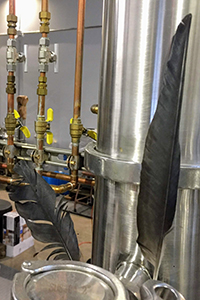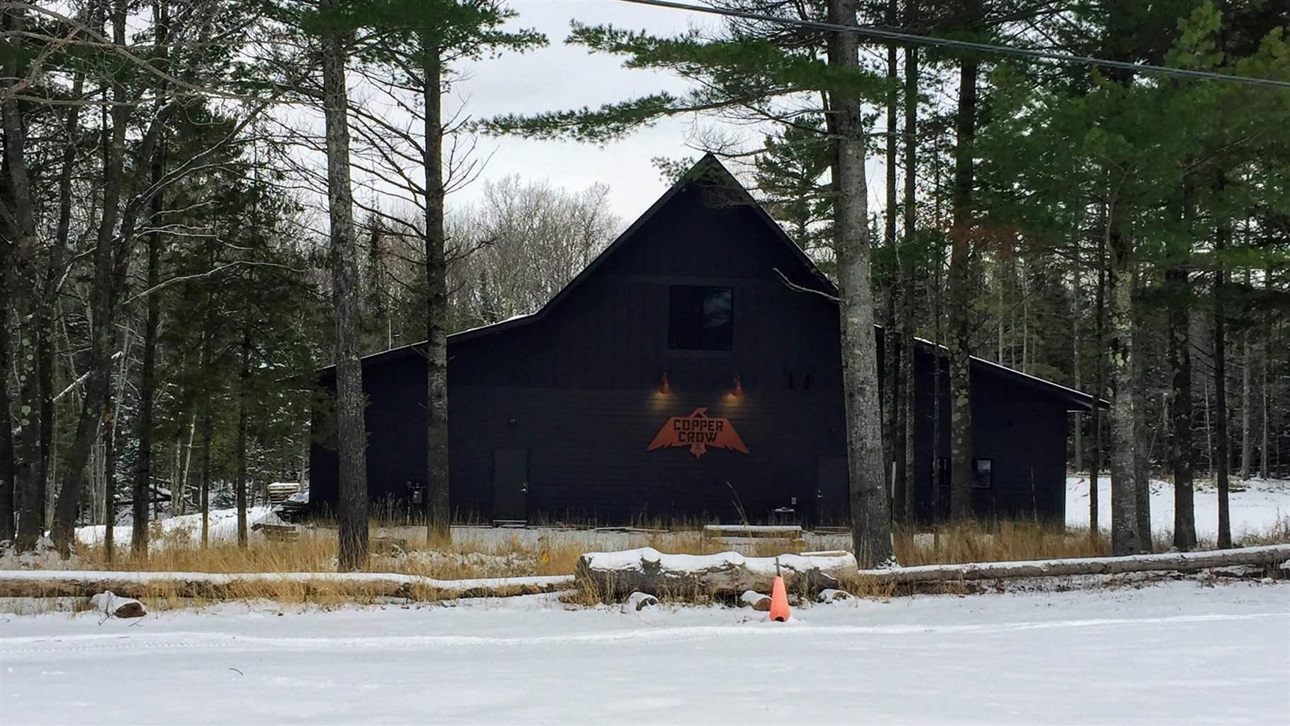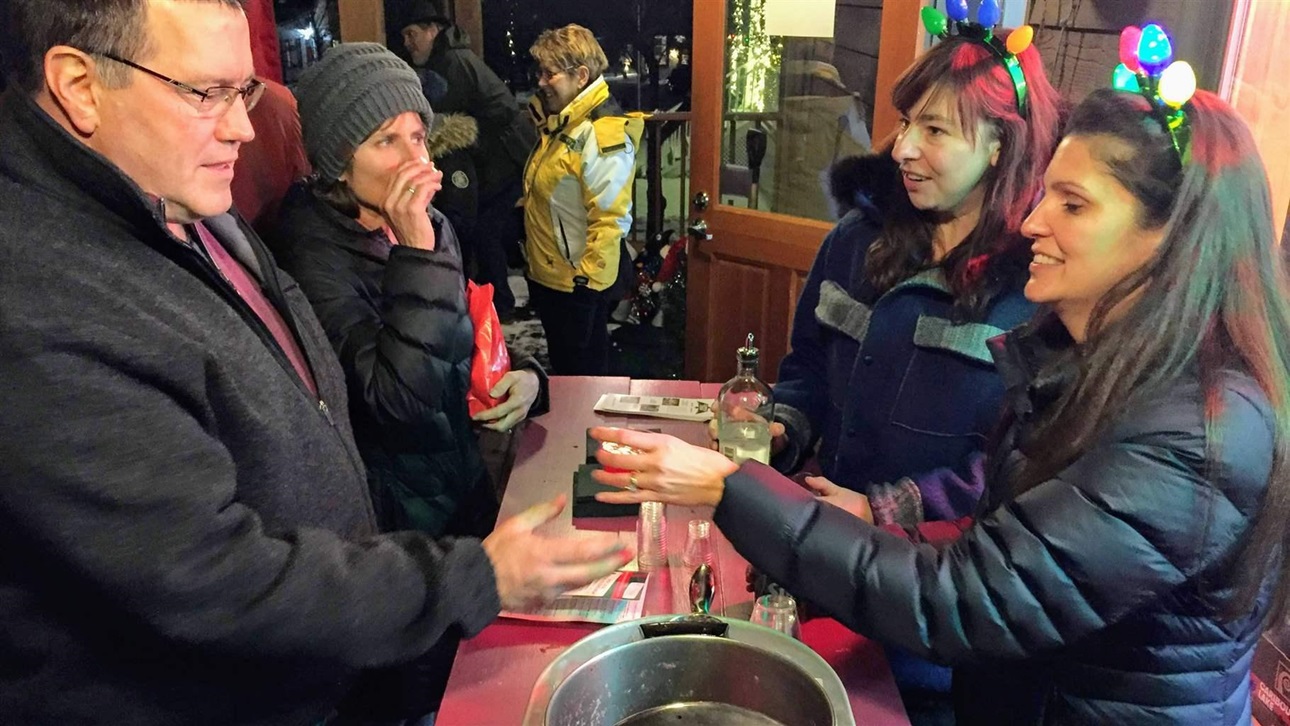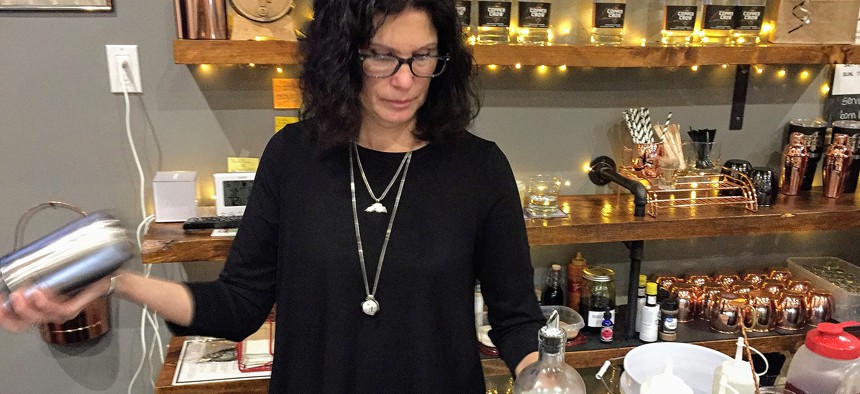Connecting state and local government leaders
A new industry could emerge on reservations, as Congress moves to lift an archaic ban on distilleries on tribal lands.
This story was originally published by Stateline, an initiative of The Pew Charitable Trusts.
RED CLIFF, Wis. — One of the last relics of federal prohibition may soon come to an end, after Congress two weeks ago voted to lift a 184-year-old ban that prohibited distilleries on tribal lands.
Once signed into law, Native Americans across the country can finally tap into the budding industry of craft spirits on their own lands, no longer stifled by a policy from a time when federal authorities forcibly removed tribes from their homelands and enacted discriminatory statutes aimed at choking off Native wealth.
The future of Native American distilling already has begun in northern Wisconsin, along the birch-lined shores of Lake Superior, where one family has found a way to bring jobs to a reservation—and perhaps, move past the stereotype of the “drunken Indian” that has long haunted its people.
Here on the heavily forested, sparsely populated reservation of the Red Cliff Band of Lake Superior Chippewa, down the snow-covered road from the lakefront casino, sits Copper Crow, the first Native American-owned distillery in the United States.
In a well-lit room with high ceilings and concrete floors, owner Curt Basina sticks a finger into the stream of clear liquid that flows from a 10-tiered column still, tasting the whey-based vodka he is developing. The vodka tastes faintly sweet with only a small bite.
“Almost there,” he says, a slight grin under his graying handlebar mustache.
The air in the distillery is heavy with the sour smell of the wheat-based mash fermenting in plastic tubs at the other end of the room. Later in the day, Basina will transfer the mash into a copper still with carbon-filtered water to begin the heating process. Two crow feathers are pinched between its pipes to honor the distillery’s name and the tribal traditions it represents.
“The crow helps you find your purpose in life,” Basina said later, taking a sip of homebrewed medicinal tea made from foraged chaga mushrooms. “It’s very meaningful in the tribal culture.”

at the distillery. (The Pew Charitable Trusts)
Basina, a former Wisconsin highway patrolman of 17 years, is one of 7,300 members of a tribe who lived on the south shores of the Great Lake their ancestors called Gichigami well before French fur trappers arrived to trade with them in the 17th century and the federal government ceded a reservation to the tribe in 1854.
Basina was aware of the federal ban when his family began to plan out the distillery, but soon learned they were exempt from the archaic statute. The distillery is within the reservation, but it’s not on tribal land—it’s on private land his family owns. They got the green light from the U.S. Treasury Department’s Alcohol and Tobacco Tax and Trade Bureau to start selling vodka last April.
His distillery illustrates how Native entrepreneurs are trying to bring small businesses to reservations, harnessing burgeoning consumer trends. The brewery, winery and distillery industries were the second-fastest-growing for manufacturing in 2017, according to U.S. Bureau of Labor Statistics data.
In 1834, when Congress banned distilleries in Indian Country, legislators said it was to “preserve peace on the frontier.” Nearly two centuries later, Basina is glad to see the language go.
“I don’t think you can get away with saying something like that today,” he said.
The Myth of the ‘Drunken Indian’
Since the founding of this country, the federal government has taken a paternalistic approach to Native American consumption of alcohol, said Peter Mancall, a professor of history at the University of Southern California.
The bitter irony, he said, is that it was colonial Europeans who introduced alcohol to native populations for economic and religious purposes, and Americans who continued to use it as a trading tool in buying furs and making treaties.
The same law that banned distilleries on tribal lands in 1834 also banned the sale of alcohol to Native Americans on reservations. And there were many more federal laws like it to enforce Native prohibition.
As a 1996 article in the Arizona State Law Journal said, “Ineffective federal and racist state legislation cemented the stigma of the ‘drunken Indian’ as a race helpless to control itself against alcohol.”
But the stereotype survived and still affects the way many people, including some Native Americans, view alcohol’s place on reservations.
Tribal members of the Rosebud Sioux Reservation in South Dakota, when asked in a 2014 survey what would have a negative impact on their economic future, most often said it would be alcohol, bars and liquor stores.
It’s a stereotype of which Linda Basina, Curt Basina’s wife of 37 years, was well aware before the couple began the Copper Crow Distillery on the Red Cliff Reservation.
“We weren’t immune to it,” said Basina, a special education teacher’s aide. “We tried to be sensitive to it. Yes, we are Native Americans, but we can also be successful at this business and give back to the community.”
There was some initial pushback against the prospect of a distillery on the reservation, said Nathan Gordon, the tribal vice chairman, adding that people thought it was insensitive to the community’s history.
“There are some individual members that don’t want nothing like that here,” he said.
But the tribal council also had to weigh the fact that the tribe allows alcohol to be sold at its casino and convenience stores, and that a distillery would bring jobs and new patrons to the reservation, Gordon said.
“It’s exciting to see a business,” said Gordon, sitting in his office adorned with a ceremonial headdress, traditional art and a wood-carved bald eagle. “Curt is an entrepreneur, he has a dream, and he’s moving things forward.”

Copper Crow, which employs eight people, markets its liquor primarily to people who don’t live on the reservation, bringing needed tourism dollars to the reservation, whose residents largely work for the tribe and in commercial fishing.
Like many reservations across the country, Red Cliff is struggling. According to its 2018 census, the reservation has an 18 percent unemployment rate and a $29,000 median household income, which is roughly half the state and national averages. Nearly a fifth of the reservation’s 1,300 residents live in mobile homes.
Gordon now encourages the other 10 tribes throughout the state to sell Copper Crow vodka in their casinos. There’s no word, he said, on whether other tribes are considering their own distilleries now.
‘Small Distilling Is Booming’
Keeping distilleries away from reservations meant years of keeping profits away, said Kevin Kosar, the vice president of policy at the R Street Institute, a Washington, D.C.-based free-enterprise think tank that has helped raise awareness of the ban in the past year.
“There is a significant amount of money on the line,” Kosar said. “Small distilling is booming in this country, following the same pattern we saw with craft beer and, before that, craft wine.”
This growing sector of the economy is now responsible for around 20,000 jobs at more than 1,500 distilleries nationwide, according to the American Craft Spirits Association. Around a dozen states across the country have even enacted laws to encourage craft distilleries, as Stateline has reported.
Seeing that growth, the Confederated Tribes of the Chehalis Reservation in southwest Washington earlier this year began planning a brewpub restaurant that featured both a brewery and a distillery, which it would own and operate. But during the permit process, they learned from the Bureau of Indian Affairs that federal law prevented them from moving forward with the distillery.
Congress threw out most federal restrictions on Native drinking in 1953, acknowledging the original 19th century statutes were “discriminatory.” The federal government has largely left liquor regulation to the states, with a few glaring exceptions such as Prohibition.
But while the 1953 law eased restrictions for future breweries on a reservation, the ban on distilling remained on the books.
Not willing to give up, Chehalis tribal leaders in March reached out to U.S. Rep. Jamie Herrera Beutler, a Washington Republican, who soon drafted legislation to end the ban. It passed the House in September, followed by the Senate two months later. It now sits on President Donald Trump’s desk, awaiting his signature.
Now the tribe is moving ahead with its plans.

The project could create a hundred construction jobs over the next year, and around 40 service jobs once the restaurant, brewery and distillery are up and running, tribal spokesman Jeff Warnke said. It’s a needed economic development boost in an area that, Warnke said, has been historically depressed.
The White House has been supportive of the bill, he said, adding that he expects the president to sign it into law.
“Through tribal sovereignty and self-determination, tribes can now open a distillery and provide jobs for their tribal members,” Warnke said. “These economic developments help provide policing, health care, roads and Head Start programs for their children.”

In Maine, the Penobscot Indian Nation also is considering its own distilling operation. The tribe, however, is still trudging through the permit and logistical processes, said Eric Nicolar of Penobscot Indian Nation Enterprises, the tribe’s business arm.
The booming demand for local artisanal goods will encourage more tribes to join the industry, R Street’s Kosar said, and support economic development that reservations surely need.
‘This Is Where Our Roots Are’
A recent Friday night wasn’t typical for downtown Bayfield, a small city just south of the Red Cliff Reservation along Lake Superior.
Two dozen people gathered outside Bayfield Wine and Spirits to hit a piñata in the 25-degree chill, warmed slightly with free samples of Copper Crow vodka and a cranberry-infused slushy that passersby gladly imbibed.
“It’s the talk of the town,” said server Liz Bodin, one of the Basinas’ daughters and a local school media specialist, wearing a Christmas-light tiara—“a beacon” for their cocktail.
She poured the tart mixture for a bundled-up couple who walked up to the table set up outside the liquor store. They give it “Nice, nice,” and “I love it,” reviews on their last stop at the Holiday Shop Hop, a festival where local businesses stay open late. The popular annual tradition is an opportunity for Copper Crow to get its name out to area residents.
Joanne Cirillo, the owner of the liquor store, said she has been carrying the vodka since it was released, encouraging customers to buy a bottle or make the short trek over to the distillery.
“Since we’re on a lake, I like to say a rising tide lifts all boats,” she said. “It helps everybody. It’s a great new product, and it’s local.”
Help from people like Cirillo can bring tourists traveling from Minneapolis and Chicago, attracted to the pristine Lake Superior waters and wild Apostle Islands just offshore, onto the reservation. Despite its checkered role in Native American history, alcohol may give a boost to the tribal economy here in northern Wisconsin and on other reservations nationwide, R Street’s Kosar said.
The Basinas made the distillery about their family, the tribe and the area—everything from the Chippewa canoe hanging from the ceiling to the apple brandy aging in barrels in the backroom.
“This is where we’re from,” Curt Basina said. “This is where our roots are. Our ties are to this community.”



